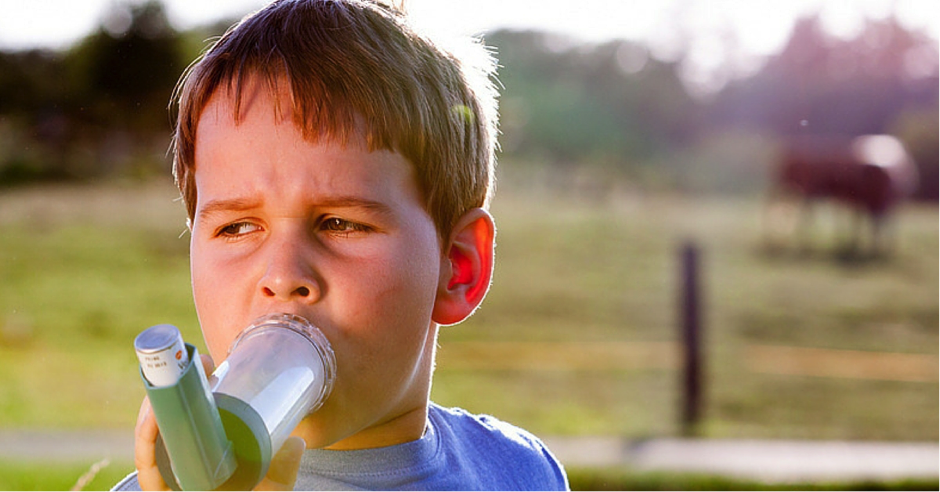We are known for sunny weather Down Under, so it’s not surprising when studies show that Australians don’t do too well in winter. Doctors report more flu cases and infections. Hospitals see a rise in heart and respiratory illnesses. There are also more people reporting depressive tendencies. Even if you have a reasonably healthy family it pays to take precautions. While the odd cold or mild flu is inevitable, there is a lot you can do.
Rug up well
Now this might seem like the most obvious advice. But the fact is that Australians don’t dress as warmly as they should in winter. A few years ago, a study by the Queensland University of Technology showed that when temperatures dropped below 19 degrees, hospitals reported higher death rates from heart and circulatory causes. According to medical experts who conducted the study, this was due to the fact that veins and arteries became more constricted in the cold, increased blood pressure and put more stress on the heart. Little surprise that the Tasmanians (who are better acclimatised to cold) do better than the sun worshippers in Sydney and Perth.
So don’t take the cold weather lightly. Dress in layers to stay warm and comfortable at all times, even indoors.
Take the flu shot
In recent years, Australia has had a few flu seasons with high fatalities in winter. This has led the government to classify it as a highly contagious viral infection that could result in life-threatening complications such as pneumonia and bronchitis. The elderly is a particularly vulnerable group accounting for over 3,000 deaths each year. A free vaccination program is available for those over 65, pregnant women and those with severe asthma, starting as early as April. Some offices offer free flu shots to their employees, but if your place of work does not, head to your local GP.
If you have young children, remember that the dosage is based on age and make sure the right one is administered.
Use common sense to deal with the common cold
The common cold is something mothers of toddlers’ fret about the most. Data shows that a toddler suffers from an average of 10 colds a year. With most of these concentrated in the cold weather, it does feel like a long winter. But there’s no gain without pain. All those colds help kids build immunity as they get older. After all, there are 200 different viruses that can cause a cold. So don’t rush to the doctor asking for antibiotics. The common cold is a virus and won’t respond to antibiotics. If the cold causes a secondary bacterial infection that is severe, see the doctor immediately.
Don’t medicate the cold, but do treat the symptoms.
- Large doses of Vitamin C or bed rest is not the answer.
- Try and stay comfortable with a lot of warm fluids (maybe chicken soup) that will help ease a sore throat and dry mouth. This will also keep you hydrated.
- Nasal drops can be quite effective in clearing a blocked nose.
- Use Paracetamol only if you have a fever.
A nasty cold can make you miserable, but in most cases will clear up in a week.
There are a few things you can do to prevent colds from spreading.
- Wash your hands every time you sneeze, cough or touch a tissue. Some doctors may advise you to cough into your elbow crease, not your hands, to reduce the chances of passing it on.
- Work on improving your immunity through regular exercise, good diet and adequate sleep.
Review your action plan for chronic conditions
There are some chronic conditions like asthma and arthritis that flare up in winter, particularly for those over 65. Australia has among the highest rates of asthma in the world, with over 2.3 million affected.
- The common cold accounts for 4 out of 5 asthma flare-ups in winter
- Exposure to cold, dry air causes airways to tighten and can quickly cause severe symptoms
- Exercise-induced asthma is more common in winter. People tend to breathe through their mouth and cold air enters the lower airways without passing the nose.
- Winter keeps us indoors, increasing exposure to triggers such as dust mites, pet allergens and smoke.
Being informed about possible triggers means you can be better prepared for winter. Your action plan can include getting medication dosages rechecked, winter cleaning your house instead of spring cleaning, and keeping a distance from those who have a cold or flu.
Arthritis is another chronic illness that gets worse in winter. Some arthritis sufferers claim that they can predict rain! That’s because they are vulnerable to even the slightest change in weather (another theory says they are also vulnerable to changes in barometric pressure). Things to do in winter:
- Dress warmly and in layers so trapped body heat adds to the warmth.
- Pay special attention to extremities like fingers, toes and your head and use gloves, beanies and a scarf.
- Exercise eases arthritis – so if you can’t get outdoor, walk in the mall, vacuum the house, stretch in front of the TV – just keep moving
Don’t ignore the blues
Winter depression has its own terminology – it’s aptly called SAD – seasonal affective disorder, more commonly known as ‘winter blues’. Said to affect 1 in 300 Australians, symptoms include weight gain, longer sleep, feeling of exhaustion and melancholy. They also tend to lose motivation and withdraw from friends and relatives. Even those who don’t have depressive tendencies can be affected by SAD.
SAD is still a bit of a mystery illness and theories abound. While some say it’s the lack of Vitamin D, some believe it is caused by a diminished level of hormones and chemical transmitters in the brain whilst others believe it is due to increased levels of melatonin during the day. Whatever the cause, here are some precautions you can take:
- Get at least an hour of outdoor light every day, preferably in the morning (don’t give that melatonin a chance to rise)
- Exercise is just as good as anti-depressants if it’s not severe
- Some nutritionists believe that eating complex carbohydrates like potatoes and pasta could raise serotonin levels and improve your mood.
It may seem like a long winter, but if there is one thing you can be sure of, it’s that spring will be here soon.





